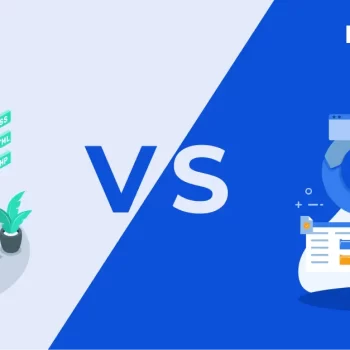Despite the fact that the telecom industry is constantly growing, it has been struggling to provide cutting-edge user experiences and meet the growing demands of operational agility. Telecom companies are constantly seeking better viable choices to reduce operational expenses, increase agility, and improve efficiency. This is where emerging technologies like Robotic Process Automation (RPA) can be extremely helpful.
“Gartner predicts that 90% of large organizations globally will have adopted RPA in some form by 2022.”
Why Telecom Companies Need Robotic Process Automation?
In general, there are many back-office processes in the telecom industry that are manual and repetitive such as order processing, credit checks, customer onboarding, and handling large volumes of data. To eliminate these highly consuming and error-prone tasks, telecom companies must rely on automation tools.
RPA provides the telecom industry with the flexibility to automate their back-office processes – thereby saving tons of human working hours. In a world where brands strive to provide the fastest and most cost-effective services to customers, RPA is a fundamental part of the innovation journey.
“According to Gartner, large-scale organizations will triple the capacity of their existing RPA portfolios through to 2024.”

RPA Use Cases in Telecom
Network Management
Using RPA technology, telecom companies can complement their network speed demands by automating repetitive operations such as incident, event, and diagnostics management. This frees up network engineers while allowing them to focus more on technical excellence.
Customer Onboarding
When a new customer is acquired, RPA assists in verifying their identity by comparing it to previously gathered information. This systematic process allows telecom businesses to quickly onboard clients, improving the customer experience and decreasing human errors in the process.
Simplified Data Entry
Using OCR (Optical Character Recognition) technology, RPA can automate various data entry processes in telecom such as scanning and indexing large volumes of documents. This reduces the number of errors and the amount of time it takes to finish a task.
Efficiently Responding to Customer Queries
RPA-based software robots are completely capable of understanding the customer query in natural language and providing appropriate answers from past data. Also, it can help with the auto-assignment of queries to the appropriate department, which reduces customer frustration. This way RPA can greatly simplify the overall query resolution process in the telecom industry.
Debt Collection
RPA implementation could be very beneficial for the entire debt collection process within a telecom company. A robust RPA software could perform the tasks regarding payment information updates, balance due dates, and other aspects. This will lead to improved efficiency and better business results for the company.
Invoice Processing
Telecom firms interact with a variety of vendors, and each generates thousands of invoices to be processed. When RPA is integrated with systems, it can process bills by analyzing information on purchase orders and entering the correct information into the systems.
Data Transformation
The telecom industry is highly dependent on massive amounts of customer data saved in a variety of file formats. RPA-enabled software bots can assist in the transformation of this data into structured data.
Types of RPA
Attended RPA
Attended RPA works alongside humans to perform and achieve tasks. It collaborates with employees in their front-office tasks to boost productivity. Also, it eliminates the real-time burden of data entry and retrieval while allowing employees to fully focus on high-value tasks that require creativity and decision-making.
Unattended RPA
Unattended RPA refers to the automation of back-office procedures that do not require human interaction. This RPA process follows a series of instructions to automate various repetitive processes like data scraping, email opening, copying and pasting, and database reading.
Hybrid RPA
Hybrid RPA is a combination of both attended and unattended automation. It enables your human and virtual workforces to work collaboratively with complete visibility rather than work in silos. This type of RPA is applicable for processes that have both structured and unstructured data.
Benefits of RPA in the Telecom Industry
Efficient Data Flow
In the telecom industry, RPA can bridge the gap between data sources and access by providing particular data that a client or employee requires. This reduces the possibility of manual errors in data analysis and ensures efficient data flow across the organization.
Service Accuracy
RPA helps employees to easily identify errors, referring to the history of similar errors that occurred previously. This reduces the possibility of errors to a great extent and enhances accuracy. Furthermore, RPA bots are set up to function 24×7, and they always deliver 100% accuracy and consistency whenever a customer comes up with a query.
Productivity
RPA technology automates all of the non-strategic and regular activities in the telecom industry, allowing staff to focus entirely on the things that require human intelligence. In addition, RPA bots can complete tasks quickly and accurately when compared to humans and thereby increase productivity and speed.
Reduced Costs
RPA in telecom can save money by automating all of the repetitive and time-consuming tasks that humans do while cutting labor costs and optimizing procedures. Additionally, a single RPA license can be utilized for multiple processes thereby reducing cost.
Challenges Associated with RPA Implementation in the Telecom Industry
Although there are many benefits and use cases of RPA in the telecom industry, it is essential to know about the challenges revolving around the implementation of RPA in telecom.
Workforce resistance
Employees may encounter shifts in their responsibilities due to any changes that accompany the installation of new technology. Hence, frequent communication from company leaders is essential to ensure that employees are completely aware of what is expected from them during the RPA implementation process. Fostering an innovative culture inside the company can only help to accelerate RPA adoption and eliminate workforce resistance.
Unrealistic Goals and Expectations
RPA provides undeniable economic benefits for telecom companies, but expecting a total turnaround in a single step is unrealistic. Ambiguity about expected outcomes causes chaos and confusion among employees, which creates a negative impact on RPA’s overall deployment. As a result, defining goals from the beginning of RPA deployment aids in accurately monitoring results and expediting RPA adoption.
Disintegrated Implementation
RPA implementation in telecom companies demands seamless integration between interdependent automated activities to avoid discontinuities. Failing to involve IT during RPA implementation raises various concerns regarding data security and disaster recovery. Hence, RPA design should be synchronized with broader aspects such as IT infrastructure and security to ensure a smooth deployment and seamless integration.
Choosing The Right Process To Automate
It’s essential for telecom companies to understand that RPA isn’t right for every process, and choosing the wrong process to automate might create a detrimental influence on an organization’s ROI. To avoid issues like these, business leaders must do a thorough analysis during the implementation phase and pick the right processes to automate.
Infrastructure Rigidity
While implementing RPA, enterprises may encounter several compatibility issues between the RPA systems and on-premise and cloud infrastructure. To overcome such IT infrastructure challenges, organizations should maintain a centralized IT infrastructure team that is responsible for ensuring synergy between the RPA implementation process and the enterprise IT infrastructure.
Conclusion
In the modern digital era, where data needs are increasing every day and demand for optimal network connectivity is at an all-time high, automation provides far more benefits than the challenges it imposes on the telecom sector. Hence, investing in RPA technology is the right choice for telecom companies to pave the way for digital transformation while making the day-to-day business process easier and more cost-efficient.



















